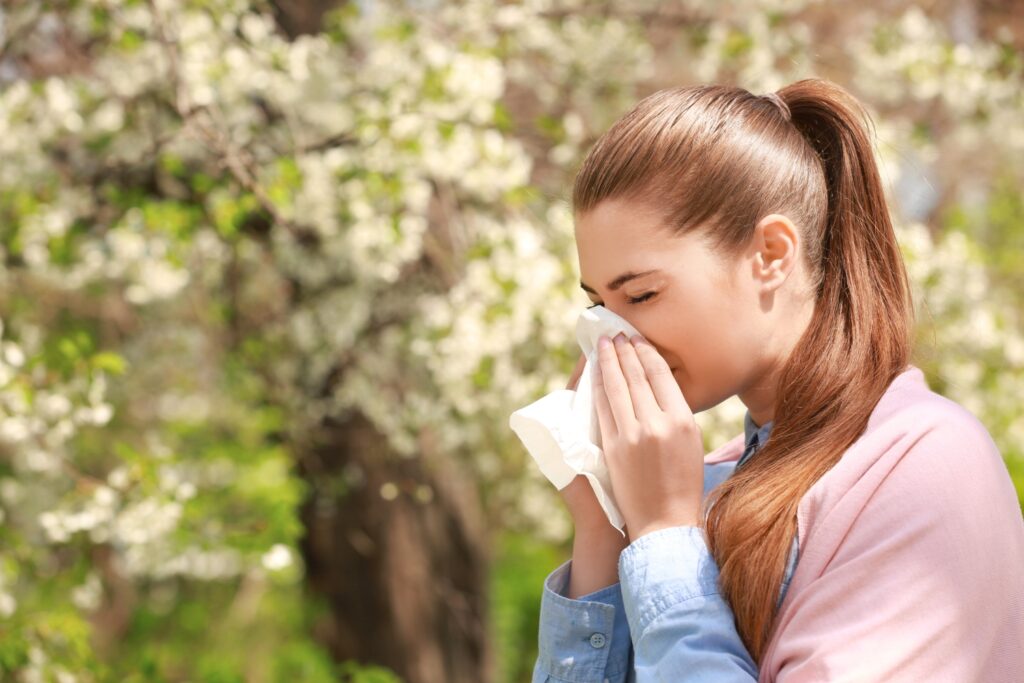
Allergy season is in full bloom in Nashville, with many people suffering the common allergy symptoms such as sneezing, nasal congestion and discharge, and itchy, watery eyes. Why do human bodies react this way, and what can we do to feel our best when the pollen flies?
In my previous blog, I discuss ways you can reduce seasonal allergies before and after they happen. And in this blog, we will delve into how intravenous (IV) therapy is one of the strongest, quickest ways to lessen symptoms.
Allergies, inflammation, and oxidative stress
Allergies come from an imbalanced immune system, usually stemming from internal inflammation and a weakened digestive system. When primed to overreact, the body responds to things like pollen, dander, or dust as foreign invaders, mounting an inflammatory response against them in the form of proteins called antibodies.
The antibodies then cause the release of large amounts of histamine, which increases blood flow, inflammation, and mucous production in an effort to remove and block the allergens. That’s why antihistamine medications like Claritin, Benadryl, and Allegra can be effective for reducing allergy symptoms. However, while I will occasionally recommend such pharmaceuticals only for severe symptoms, they don’t target the root of the problem.
Oxidative stress, or internal inflammation, is a key factor in the development of allergic diseases. The body uses oxygen to produce energy and fight infections, but when there aren’t enough antioxidants in the body, it can become unstable and form free radicals. The free radicals then damage cells, proteins, and DNA in the body, creating a cascade of further inflammation. This snowball effect overwhelms the detoxification pathways, causing more oxidative stress, which leads to immune system activation and sometimes allergies. So, by decreasing overall systemic inflammation, we can decrease the likelihood of the development of allergies.
How IV therapy curbs seasonal allergies
Supporting your immune system with the fluids, vitamins, and minerals it needs to flush out toxins and allergens is an important way to stay healthy. The most efficient way to give your body a boost of key nutrients is by IV infusion directly into the blood stream, bypassing the digestive system. IV therapy calms the immune system by directly reducing oxidative stress in the body and lowering the histamine response.
Allergic diseases are associated with reduced blood levels of ascorbic acid, or vitamin C, a necessary antioxidant that prevents excessive oxidative stress and inflammation without reducing the defensive capacity of the immune system. During sickness, times of stress, or allergy season, it can be difficult to consume and absorb enough vitamin C to effectively neutralize high levels of inflammation. A clinical study of IV vitamin C’s effectiveness to treat both respiratory and skin allergic diseases found significant reductions in symptom severity.1
Glutathione, also called the “master antioxidant”, is also an extremely important molecule for immune function. It is produced by our bodies’ cells, especially in the liver. During inflammation, large amounts of glutathione are used to combat oxidative stress, which often leads to low glutathione levels and vulnerability to allergy symptoms, particularly in the ear, nose, and throat, which are exposed to high levels of oxygen during respiration.2
The IV I like for seasonal allergies is Vitality’s customized Myers cocktail, followed by a glutathione push. The Myers formula supports the immune system and has a substantial dose of vitamin C, while glutathione calms down the immune response and rebalances the inflammatory process.
If allergies are a problem for you, please read my eight steps to relieve seasonal allergies, and call Vitality at 615-891-7500 receive a 20% discount on your first IV treatment.
References:



